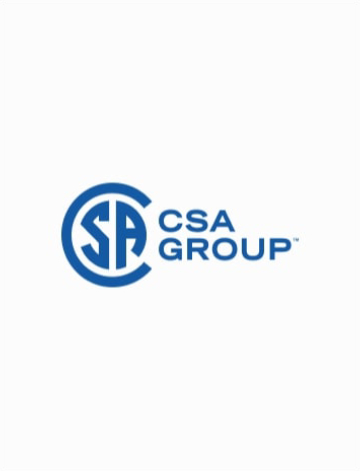Preface
This is the fifth edition of CSA B149.3, Code for the field approval of fuel-related components on appliances and equipment. It supersedes the previous editions published in 2010, 2005, and 2000 by the Canadian Standards Association (CSA) as CSA B149.3, and in 1989 by the Canadian Gas Association (CGA) as CAN/CGA-B149.3.
This Code brings together for the convenience of users the applicable requirements for appliances and equipment, originally published as part of the CSA B149.1 and CSA B149.2 Codes.
In this 2015 edition, where a major change or addition to the previous edition of the Code has been made, the clause, table, or figure affected is identified by the symbol delta in the margin. Users of the Code are advised that the change markers in the text are not intended to be all-inclusive and are provided as a convenience only; such markers cannot constitute a comprehensive guide to the revisions made to the Code. Care must therefore be taken not to rely on the change markers to determine the current requirements of the Code. As always, users of the Code must consider the entire Code and any local amendments.
The CSA B149.3 Code Committee, which is responsible for preparing this Code, consists of members of the provincial gas inspection authorities, natural gas utilities, propane distributors, appliance, equipment, and accessory manufacturers, certification organizations, and representatives from the Heating, Refrigeration and Air Conditioning Institute of Canada, the Mechanical Contractors Association of Canada, and federal government departments. This Code has been formally approved by the CSA B149.3 Technical Committee on the Code for the Field Approval of Fuel-Related Components on Appliances and Equipment and by the Interprovincial Gas Advisory Council.
Scope
1.1
This Code contains the requirements for fuel-related components and accessories and their assembly on an appliance utilizing gas, downstream of the manual shut-off valve specified in Clause 6.18.2 of CSA B149.1. Clause 13 of this Code contains additional requirements for process ovens, including bakery ovens, process furnaces, and atmosphere generators operating at approximately atmospheric pressure and used by industry for the processing of materials. Recommended requirements for liquid and solid fuel-burning appliances are located in Annex H (liquids) and Annex I (solids).
1.2
This Code does not apply to
(a) installations in marine pipeline terminals;
(b) gas where used as a feedstock in petroleum refineries or chemical plants;
(c) gas designated for storage or handling, or both, at liquefied petroleum gas bulk plants;
(d) gas where used for natural gas for vehicles;
(e) a new appliance for which there is an approved Standard;
(f) a manually operated appliance with an input not exceeding 20 000 Btuh (6 kW) used for industrial applications; and
(g) other fuels not covered in this Code and used in combination with gas.
1.3
When another fuel is used in the installation and in combination with gas, the safe operation of that fuel shall be approved.
1.4
Requirements contained herein apply only to that portion of an appliance using gas as defined in Clause 1.7, atmosphere gas, and reaction gas.
1.5
The requirements contained in this Code apply
(a) to new non-certified appliances and equipment of all inputs for which there is no approved Standard;
(b) when the upgrading of an existing certified or non-certified appliance is required; and
(c) to programmable logic controllers or microprocessor-based controls used for flame safety.
1.6
The requirements contained in this Code may be used to replace or supplement an approved Standard with the permission of the authority having jurisdiction.
1.7
When the term gas is used, the requirements of this Code include, and apply equally to, any of the following gases or mixtures of them: natural gas, manufactured gas, propane, propane air, propylene, butane (normal butane or isobutane), and butylene.
1.8
The values given in yard/pound units are the standard. The values given in parentheses are for information only.
1.9
In this Code, unless approved otherwise by the authority having jurisdiction, shall indicates a mandatory requirement; should indicates a recommendation or that which is advised but not mandatory; and may indicates an advisory or optional statement. Notes to the text do not include mandatory or alternative requirements. The purpose of a note is to separate from the text explanatory or informative material that is not properly a part of this Code. Notes to figures and tables, however, are considered part of the figure or table and may be written as mandatory requirements. Annexes are designated normative (mandatory) or informative (non-mandatory) to define their application.


